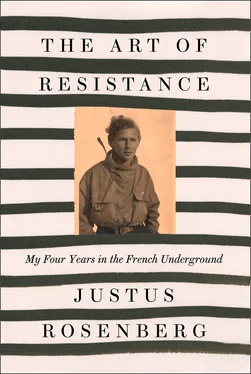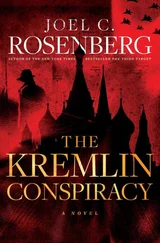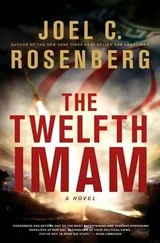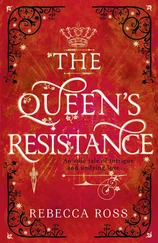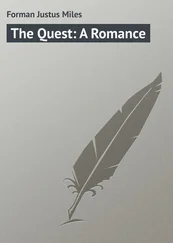One afternoon when I was about fourteen, I heard the “Liebestod” (love-death) aria from Richard Wagner’s Tristan and Isolde on the radio and fell in love with it on first hearing. For reasons I didn’t then understand, Wagner was anathema to my father and certainly not in his repertory. One summer’s day in 1936, when I was fifteen, my parents planned to stay out late, while I planned to take the suburban train to Zoppot and attend whatever was being performed that night at their annual summer, open-air, Wagnerian opera festival. It was Rienzi . Since I had no money for a ticket, I managed to get through a hole in the wire fence that surrounded the place and find an elevated spot with an unimpeded view of the stage. I was also close enough to hear all the subtle harmonies of Wagner’s music. Two years later, I learned that Wagner had been one of the most virulent anti-Semites of the nineteenth century and was Hitler’s favorite composer.
THOUGH MY FATHER’S father had not aided him financially after his elopement with my mother, once I was born, tensions eased between them, and my grandfather’s lucrative international business trading in grain was now supporting his son. My father owned a storage facility in town from which he fulfilled wholesale orders. It was on the ground floor of a three-story apartment in a pleasant Danzig neighborhood. A business office and the storage facility opened onto the street. We lived upstairs. Other Jewish businesses flourished in close proximity. Two doors down, for instance, was Levi’s clothing store. This was very convenient for my father and perhaps gave him a false sense of security.
A POGROM GERMAN-STYLE A POGROM GERMAN-STYLE (SPRING 1937) PREPARING TO LEAVE DANZIG (SUMMER 1937) AT THE STATION (SEPTEMBER 1937) BERLIN (SEPTEMBER 2–12, 1937) Part II PARIS (SEPTEMBER 1937–SEPTEMBER 3, 1939) “THE PHONY WAR” (PARIS, SEPTEMBER 1939–JUNE 1940) THE DEBACLE (PARIS AND BAYONNE, JUNE 1940) TOULOUSE (JUNE AND JULY 1940) TO MARSEILLE, IN MARSEILLE (AUGUST–SEPTEMBER 1940) OVER THE PYRENEES (SEPTEMBER 11–13, 1940) WALTER BENJAMIN (LATE SEPTEMBER 1940) VILLA AIR-BEL (NOVEMBER 1940–FEBRUARY 1941) MAFIA (FEBRUARY–JUNE 1941) CHAGALL (SPRING 1941) MAX AND PEGGY DEPART (JULY 1941) THE EXPULSION OF FRY; MY MOUNTAIN CLIMBING ADVENTURE (AUGUST–DECEMBER 1941) GRENOBLE (DECEMBER 1941–AUGUST 26, 1942) Part III INTERNMENT (AUGUST 27–29, 1942) ESCAPE (SEPTEMBER 6, 1942) UNDERGROUND INTELLIGENCE AT MONTMEYRAN (AUTUMN 1942–MARCH 1943) MANNA FROM THE SKIES (NOVEMBER 1943–MAY 1944) LAST DAYS ON THE FARM (JUNE 1944) BECOMING A GUERRILLA (JUNE 1944) HAUTE CUISINE IN THE CAMP (JUNE–JULY 1944) THE AMBUSH (JULY 1944) THE 636TH TANK DESTROYER BATTALION (AUGUST–OCTOBER 1944) THE TELLER MINE INCIDENT (OCTOBER 11, 1944) HOMECOMING TO PARIS (DECEMBER 1944–FEBRUARY 15, 1945) GRANVILLE (FEBRUARY 15–MARCH 8, 1945) UNRRA (APRIL 1945–OCTOBER 1945) TO AMERICA (OCTOBER 1945–JULY 13, 1946) EPILOGUE: WHAT HAPPENED TO … PICTURE SECTION INDEX ACKNOWLEDGMENTS ABOUT THE AUTHOR ABOUT THE PUBLISHER

Spring 1937 A POGROM GERMAN-STYLE (SPRING 1937) PREPARING TO LEAVE DANZIG (SUMMER 1937) AT THE STATION (SEPTEMBER 1937) BERLIN (SEPTEMBER 2–12, 1937) Part II PARIS (SEPTEMBER 1937–SEPTEMBER 3, 1939) “THE PHONY WAR” (PARIS, SEPTEMBER 1939–JUNE 1940) THE DEBACLE (PARIS AND BAYONNE, JUNE 1940) TOULOUSE (JUNE AND JULY 1940) TO MARSEILLE, IN MARSEILLE (AUGUST–SEPTEMBER 1940) OVER THE PYRENEES (SEPTEMBER 11–13, 1940) WALTER BENJAMIN (LATE SEPTEMBER 1940) VILLA AIR-BEL (NOVEMBER 1940–FEBRUARY 1941) MAFIA (FEBRUARY–JUNE 1941) CHAGALL (SPRING 1941) MAX AND PEGGY DEPART (JULY 1941) THE EXPULSION OF FRY; MY MOUNTAIN CLIMBING ADVENTURE (AUGUST–DECEMBER 1941) GRENOBLE (DECEMBER 1941–AUGUST 26, 1942) Part III INTERNMENT (AUGUST 27–29, 1942) ESCAPE (SEPTEMBER 6, 1942) UNDERGROUND INTELLIGENCE AT MONTMEYRAN (AUTUMN 1942–MARCH 1943) MANNA FROM THE SKIES (NOVEMBER 1943–MAY 1944) LAST DAYS ON THE FARM (JUNE 1944) BECOMING A GUERRILLA (JUNE 1944) HAUTE CUISINE IN THE CAMP (JUNE–JULY 1944) THE AMBUSH (JULY 1944) THE 636TH TANK DESTROYER BATTALION (AUGUST–OCTOBER 1944) THE TELLER MINE INCIDENT (OCTOBER 11, 1944) HOMECOMING TO PARIS (DECEMBER 1944–FEBRUARY 15, 1945) GRANVILLE (FEBRUARY 15–MARCH 8, 1945) UNRRA (APRIL 1945–OCTOBER 1945) TO AMERICA (OCTOBER 1945–JULY 13, 1946) EPILOGUE: WHAT HAPPENED TO … PICTURE SECTION INDEX ACKNOWLEDGMENTS ABOUT THE AUTHOR ABOUT THE PUBLISHER
EARLY IN 1937, Nazi demonstrators began targeting Jewish businesses in Danzig. My father refused to take them too seriously. He didn’t believe they represented a change in official policy. They were disturbing, of course, for they reminded him of the spontaneous outbursts against the Jews common since the early Middle Ages. In the familiar pattern, anti-Semitic feelings would manifest for a few months and then die down.
Under the Nazis, however, the character of anti-Semitism was changing. Outbreaks of hatred against the Jews would neither be sporadic nor temporary. One beautiful spring day in 1937, I stopped at the window of a bookstore to look at the colorful covers on display. Suddenly my attention was attracted by shouting so loud and so close that it made the windowpane tremble. I tore myself away and headed in the direction of the noise. It was the sound of a group of Nazis chanting slogans and a crowd of onlookers walking along with them. I turned at the end of the block and saw at least thirty people—young and old—howling “ Judas verrecke! ” (“Let the Jews be slaughtered!”). I wanted to go and warn my parents, but I was curious to see what the Nazis would do. They were not in uniform, and they weren’t alone: a crowd of bystanders in the middle of the street moved slowly along with them. The Nazis themselves were moving slowly, making funny movements with their heads, to the right, then to the left, to take in everything that was happening around them as they marched. The mob beside them kept growing. Soon I really did want to get away and warn my parents, but I was now in the midst of them. I couldn’t move too quickly or I would appear to be abandoning the scene. I kept thinking, confusedly, wishfully, that perhaps they’d just disperse. I remembered my father’s words: “Bah! They’ll get over it; a few months from now everything will settle down.” But things were not about to settle down. These Nazis were getting wilder and wilder, their cries of “Death to the Jews” more and more virulent.
Now I myself was being pushed forward. When would the police show up and prevent them from doing something violent? But the police were nowhere to be seen.
The crowd was being squeezed closer and closer together. The Nazi agitators had reached Steiner’s grocery store, whose attractive shop front had been repainted the previous winter. The display window and the store’s clean, modern interior struck me as strangely out of place in this ominous tumult. I saw several of the Nazis holding bricks in their hands, others brandishing truncheons or carrying buckets of paint.
It happened like a bolt of lightning: a crash of broken glass, and Steiner’s shop window was smashed into shards. The men weren’t shouting anymore; they seemed to be in rapture over their fine work. The crowd remained silent, too, though the hiatus in the uproar didn’t last very long. Steiner came out of his store, his big blue apron hanging over his big belly. The children in the neighborhood were accustomed to making fun of him, and he’d often come out of the store, just like that, to chase them away. Now he looked stunned, surprised, like someone who had been slapped without his knowing why, as if by mistake. He stepped toward the Nazis, his hands out in front of him—begging for mercy? to protect himself? to show peaceful intentions? to reason with them? Suddenly he brought his hands to his face. Someone had thrown something at him and struck him. He stumbled backward, his hands covered with blood, his body careening. Then, with a quick motion, he turned and ran toward a large door at the back of his store. Everyone was surprised to see him escape so deftly, since they had the impression his big bulk was about to collapse on the pavement. He had left his store wide open, but behind the big oak door he seemed to be safe. I let out a sigh of relief.
Читать дальше
